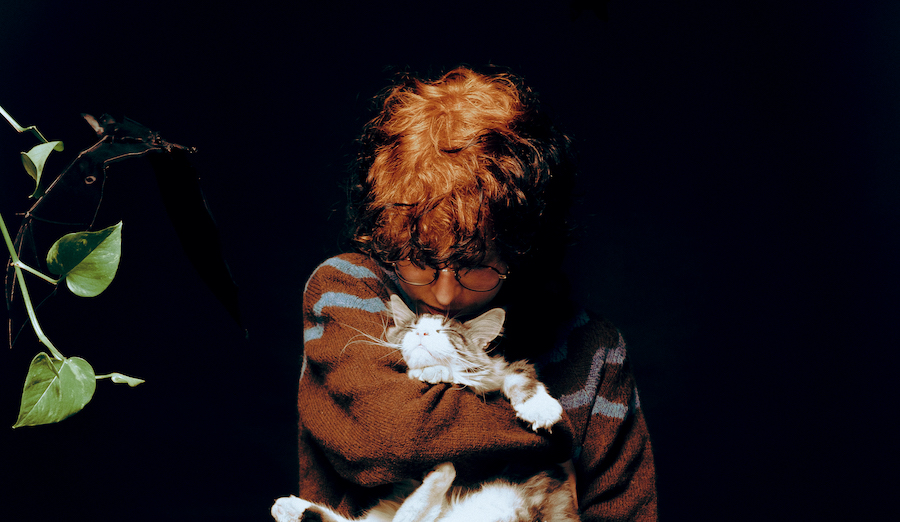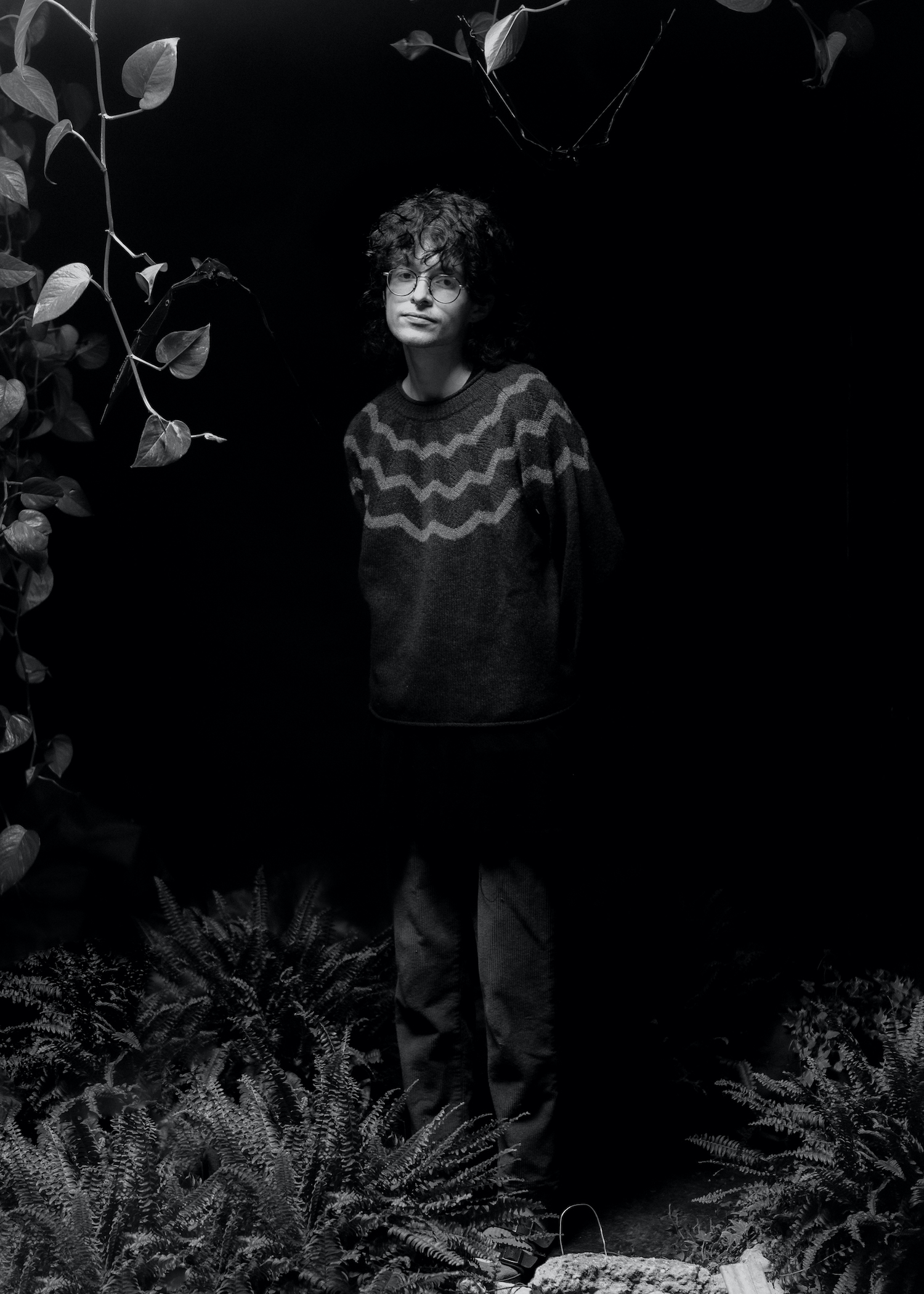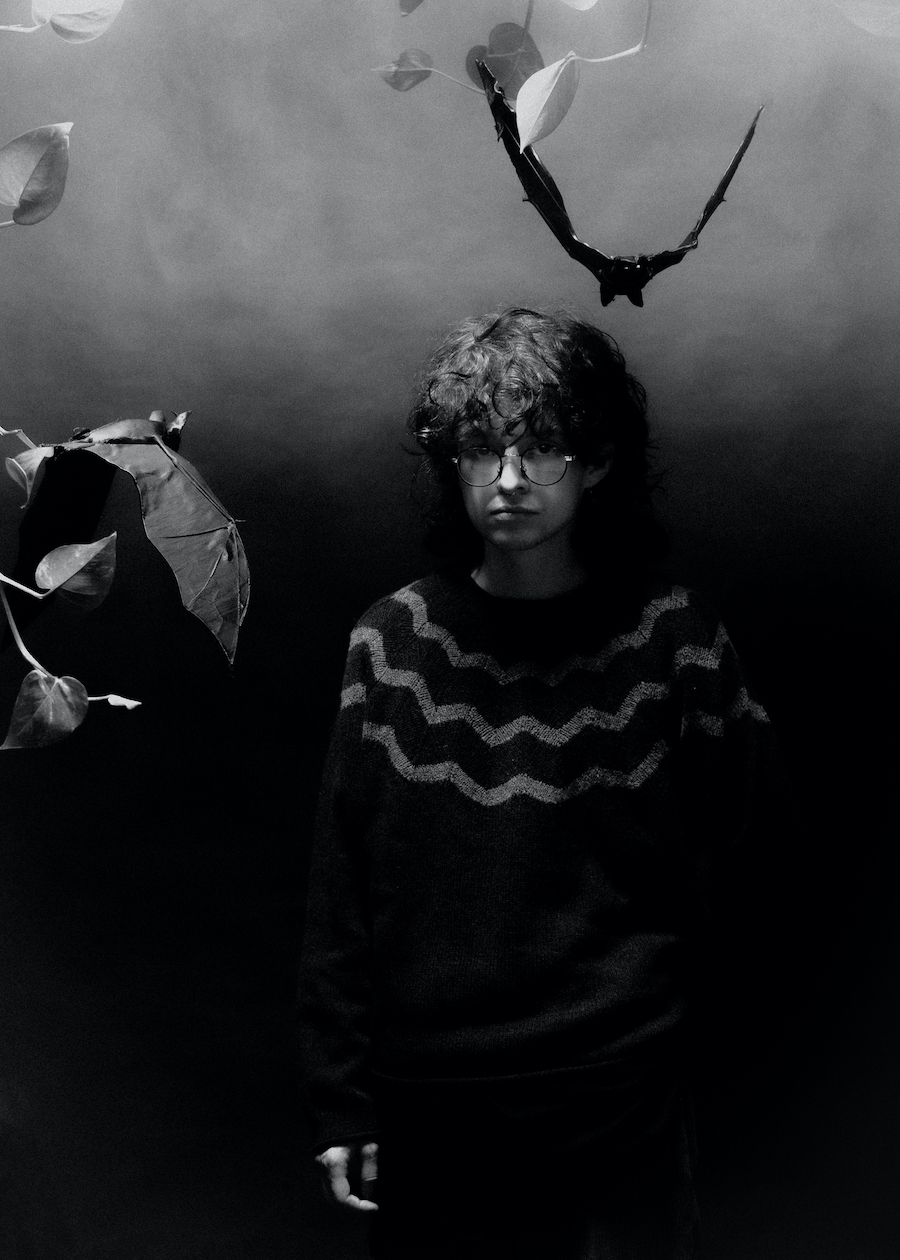Cavetown’s Last Album Finds Beauty in Sadness
On “worm food,” Skinner discusses love, heartbreak and isolation over drums, guitars, and a synthy chillwave alt-pop soundscape. Like on previous hit albums Lemon Boy and Cavetown, he gives a little sliver of his life over to the audience.

For 24-year-old UK native Robin Skinner, each album is a chapter of his life. To start his most recent album, he began with an end. The first song that Robin “Robbie” Skinner, or Cavetown, decided to put on worm food is a goodbye song to a person they loved, the last song they ever wrote about them.
On worm food, Skinner discusses love, heartbreak and isolation over drums, guitars, and a synthy chillwave alt-pop soundscape. Like on previous hit albums Lemon Boy and Cavetown, he gives a little sliver of his life over to the audience. Tracks detail Skinner’s experiences with his parents’ divorce, his self-image, and his innermost feelings.

worm food is an emotional heavy-hitter with a lot of feeling. Skinner made sure of it. When Skinner was writing the songs on this album, they wanted to balance energetic drums and occasional pop punk influences with lo-fi roots and piercing storytelling. At times Skinner would take a step back from a song, strip it down, and return to the roots to remind themself what the song’s message was, and to make sure each track felt “as deep” as they wanted. It’s that dedication to creating intimate music that’s led to Skinner’s daring brand of bedroom pop and alt-rock captivating millions.

V chats with Skinner about his latest album, his process making “worm food,” and more.
V Magazine: I know you grew up around music. Both your parents have experience teaching music. Do you remember some favorite moments with your parents that really shaped your relationship to music, any early experiences that stand out?
Cavetown: Well, I don’t have a great memory. But we do have family videos. And there’s a few very sweet home videos of me when I was like, probably one, in my mom’s arms. (My parents) played classical music around the house all the time, because they’re more in the classical world. She had classical music playing and she’s saying “Can you dance? Can you dance?” It’s very sweet. Very cute. So I used to dance to classical music as a baby, I suppose. I don’t remember it personally. Yeah, they’ve always been really nurturing and eager to help me with any interests that I’m into. They took me out of school for my 14th or 13th birthday, maybe even younger, to buy me my first electric guitar. They were like, “We’re gonna plan this around your music class at school so that they’ll understand.” So, they took me out of class to take me to the store to pick it out. That was very exciting, and I still have it. We take it on tour as a spare guitar.
V: So was that like, a coming of age moment in your family? Like, was there a lot of ceremony around that?
C: I think I’d been asking for one for a while, like talking about wanting one. I paid for my own first acoustic guitar, but I’d been paying it off over a couple of years from pocket money and stuff. So, it just felt very special and exciting that they wanted to provide me with that when I knew that it was such an expensive guitar. That meant a lot. It kind of showed me that they trusted in my desire to pursue music properly. They were like, “This is gonna be important to you. So it’s important to us too.” And that was really nice.
V: You started releasing music relatively young as well. Do you feel like, at that time, being younger helped you feel more comfortable expressing yourself? Has that changed as you’ve grown up? Do you feel more or less comfortable?
C: I think that I felt pretty comfortable leaning into sharing my music just because of how big a part of my life the Internet was. It just felt like a normal place to share things. I spend all of my time on social media pretty much. All of my friends are on there. I wanted to show them what I’d made. So it just felt like a very normal medium to use. I think also, since I was like 12 when I started my Bandcamp page, my brain hadn’t formed enough to think about the future and what it means to be yourself. I think that kind of played a part in it all feeling natural to me, I guess. Yeah. I think my feelings about sharing so much of myself online have definitely changed. But since the beginning I’ve always been just like welcomed really warmly by people. So I feel really grateful and lucky to have had that experience. Even though I’ve had bumps and things that I’ve had to learn from, I still feel like it’s a very safe little world that has grown around me.
V: How do you balance the intimacy of the music and your platform, and being more introverted, all those different aspects. Sort of, what lessons you’re referring to having learned along the way?
C: It’s definitely like, I still feel like I’m learning how to balance it, because it’s constantly changing. But that’s a good thing. If you want to really do this for a long time, then the space that you’re working at has to be constantly changing. You also should be constantly adapting too. Pretty much every time I tour it’s bigger and bigger, and so I have to kind of readjust every time.
In the early days, I used to do a lot of meet and greets. I used to try and meet everyone that came to my shows, like I think the biggest I did was when I did a 300 cap room, which was huge for me then. That’s still a big number, but it’s small for me now. It would take me like an hour per 100 people. I was getting burnt out and I couldn’t figure out why.
So, we’ve had to kind of adjust to that, because I still want to be able to interact with my audience and make them feel welcomed. I want to let them know that I still care about them, even if I can’t meet every single person after the show. So yeah, every time we tour we try new things and figure out that some things aren’t gonna work anymore, which can be sad. But there’s always a way to make it enjoyable for everyone.
V: I found this comment that you made a while ago and you said, “I think something that I often forget is that simple and basic is often better for a song, I always end up adding too much or making something too complicated, which results in me hating it. But taking a few steps back and stripping a song down to just simple chords and melodies can really make it work.” I was curious though, I was listening to this new album and I feel like there is a lot more focus on the production, and it is a lot more stylized. I think that’s typical of advancing as an artist, but I was wondering how you preserve the essence of those like lo-fi roots while experimenting with more ambitious production and projects?
C: Yeah, I definitely still feel that way about my music. There were some tracks on this album that I literally started over because I was like, there’s too much going on on my screen. I’m confused. Yeah, a lot of the stuff that I tried in this album I am not super confident with, like especially drums. I am not a drummer, so it didn’t come as intuitively to me as it would to mix vocals or guitar. I kind of don’t understand the instrument as much.
So I definitely had some stressful times where I had like four different EQ plugins in the same thing and I was like, “There’s so many things going on and I can’t tell what’s wrong with it.” It helps to just think like, “Alright, I’m going to take everything off this track and leave it, and put it in its raw form and work backwards again from there. When I was mixing “heart attack,” I think I took so much off the drums and it sounded way better.
And I was like, “Okay, yeah, I get it, I was doing too much. And so I go back through everything and kind of do the same thing. And the song “better,” I originally started that, and it had the same similar sounds to “fall in love with a girl” or “heart attack.” It wasn’t feeling as deep anymore, I guess like as infinite as I wanted it to. I literally started over and I kept it as primarily a guitar track to kind of help the words shine through a bit more, to help the flow of it work how I was imagining. I think you can still experiment and try new things and be ambitious, while also knowing when it’s too much, I guess.
V: And then what’s something you’ve been really grateful for lately?
C: I’m very grateful for my girlfriend. We’ve been having a lot of fun lately. We actually, yesterday, we just got back. We had a trip this weekend to London because Pierce the Veil was playing two shows at the O2 Forum Kentish Town. We went to both of them. We had such an amazing time. We’re coming up on a year being together. We met pretty much a year ago as well. We basically went through the same music phases growing up, like we went through the same emo phase kind of thing. So it’s really cool. We have a lot of childhood and teenage ties to Pierce the Veil. It’s been a really special band for both of us. It was a really, really special time. Not only being there, but also being able to watch from the side stage because I’ve since had the pleasure of meeting Vic and becoming friends with the band. We had so much fun. We hung out with the band afterwards, both nights and they took such great care of us. It was so sweet. That’s what comes to mind when I think of things that I’m grateful for. Yeah, I’m still beaming a little bit.
V: That’s lovely. Okay, so my next question is just in general, you know, tell us a little bit about “worm food.” But particularly, picking the album order and cultivating a theme. Was there a story you were trying to tell? Like, when did it go from a collection of songs to an album? When did you know “Okay, this is telling the story I want, this is creating the effect I want”?
C: Okay. Yeah, I think I really admire artists who can stick to a theme for a whole album. And like, it’s all intentionally part of the same storyline or whatever. I just can’t. I can’t keep it focused on one thing in the same way. But it’s kind of like, every project I do, I feel like it is a diary entry, I guess. Just a collection of times when I’ve needed to process things, I guess. But yeah, I was given a lot of space to just kind of let the songs come to me on this album cycle. So they just kind of accumulated naturally over time. I was always writing them with the intention of putting them out.
I kind of, I noticed myself, like bouncing around a bit. Like sonically. Maybe some songs don’t feel like they fit together in the same project. So usually, around like the last quarter of writing, I kind of look at the different sounds that I’ve come up with. There’s usually sub categories within the album. All these songs feel like their friends together in the album. Songs like “fall in love with a girl” and “heart attack” and “1994,” like in my head, they are friends. They have those pop punk influences together. Whereas like, the more electronic ones, like “Grey Space” and “Kill You” are friends. As long as each song has at least one friend sonically, that helps me feel like the album’s coming together. For me, it’s not really until I have like album art, and maybe a music video in my head, that it kind of forms an identity for me as a project. I like to let it kind of form on its own. Its own storyline and its own identity. And I just kind of, I feel like I’m listening to it along the way.
V: You said you feel like the songs are diary entries? Could you elaborate on that?
C: Yeah, absolutely. I guess something that comes to mind for me in terms of chapters in my life is that a lot of what I was writing before this album were like about the same person who I had like a really big thing for and it wasn’t going to work and I was a bit hung up on that for like a few years even. I think the first song that I decided to include on this album, like the oldest one, is basically the last song that I wrote about that person.
And it was kind of a goodbye song, I guess. Yeah, that’s something that I didn’t intentionally do that, like, I’m gonna write a goodbye song to that chapter. It just like, that was just relevant at the time. Yeah, I think it’s kind of like, cool that that’s included in this chapter. Like a goodbye to the previous chapter, I guess.
V: Anything else you’d like to share with your fans and the readers of V?
C: I think it would be cool to mention my project that I’ve been working on, the This Is Home project. Basically, working with charities that support LGBTQ+ young people. It’s more of a focused project. I plan to grow it and do a lot more significant fundraising for people who need access to LGBGQ+ healthcare, mental health resources, or things like safe housing. I am really excited to be growing that. I’m going to be doing merch and shows that go towards the foundation. People can keep an eye on that, and people should see if there’s anything they want to be involved in. If any one has any questions or financial need, as well, that’s what it’s there for.
Discover More
